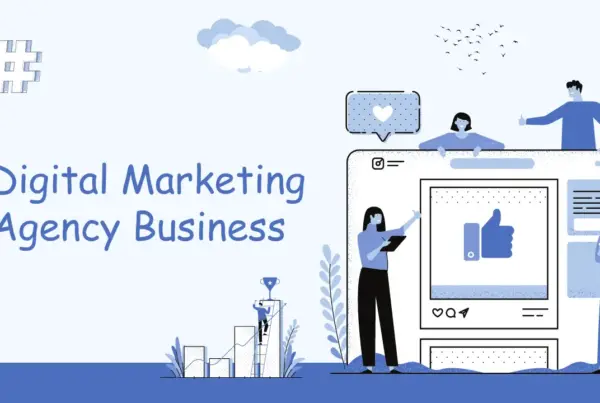Startup ideas for students heartily indicate a door that opens with ample opportunities. Through different interests and skill sets, students can explore the goal of fulfilling these concepts.
Essentially, it would help if you opted for a venture that connects with your passion and skills and increases your chances of success in the competitive startup landscape.
Whether it’s leveraging technology, creative services, or analytical expertise, each idea has the potential to carve out a unique space in the market.
Table of Contents
Startup Ideas For Students
Embarking on an entrepreneurial journey while still in college is exciting and has the potential to be financially rewarding. To help students start their startup business, we have compiled a list of profitable ideas that boast low startup costs, quick time to revenue, and impressive profit margins.
Let’s see all of the millionaire business ideas from here,
01. Online Tutoring Platform
- Average Annual Revenue: $30,000 – $50,000
- Average Profit Margins: 60%-70%
- Low Startup Costs: $500 – $1,000
- Time to Revenue: 1-2 months
- Best Suited For: Education enthusiasts, subject experts
You can quickly build an online tutoring platform by connecting other students who want academic help with qualified tutors. With a low initial investment for website development and marketing, this startup idea has considerable earning potential. You must use your services for specific subjects or exams to carve out a niche in today’s highly competitive tutoring market.
02. E-commerce Reselling
- Average Annual Revenue: $20,000 – $40,000
- Average Profit Margins: 40%-50%
- Low Startup Costs: $200 – $500
- Time to Revenue: 1-3 weeks
- Best Suited For: Fashion enthusiasts, trend-savvy individuals
As a student, it is very helpful to enter the world of eCommerce by starting a reseller business. And you are eligible to sell them on many other popular platforms like eBay or Instagram. The funny thing is that you can keep costs down by working from home and using social media for marketing.
03. Mobile App Development
- Average Annual Revenue: $50,000 – $100,000
- Average Profit Margins: 50%-60%
- Low Startup Costs: $1,000 – $3,000
- Time to Revenue: 3-6 months
- Best Suited For: Tech-savvy individuals, programming enthusiasts
Do you specialize in coding, or are you experienced enough? If the answer is yes, then you should definitely consider developing mobile apps. You might consider creating an app that solves a specific problem or fills a niche market.
Besides, you can monetize through ads, in-app purchases, or the premium version. By applying a little marketing strategy, you can generate a steady income stream while showcasing your programming skills.
04. Social Media Marketing Agency
- Average Annual Revenue: $40,000 – $80,000
- Average Profit Margins: 50%-60%
- Low Startup Costs: $500 – $1,500
- Time to Revenue: 1-2 months
- Best Suited For: Marketing enthusiasts, social media aficionados
You can leverage your social media skills very quickly by starting a marketing agency. You can offer services like content creation, social media management, and influencer partnerships to small businesses and startups. It is wise to use free or low-cost digital tools and platforms to keep overhead to a minimum.
05. Virtual Assistance Services
- Average Annual Revenue: $25,000 – $45,000
- Average Profit Margins: 40%-50%
- Low Startup Costs: $200 – $500
- Time to Revenue: 2-4 weeks
- Best Suited For: Organized individuals, multitaskers
It is true that with the rise of remote work, the high demand for virtual support services is increasing.
You can offer administrative support, scheduling, and other tasks to busy professionals or entrepreneurs with a virtual support service. You will be able to keep costs down by working from home and marketing your services through freelancing platforms.
06. Virtual Fitness Coaching
- Average Annual Revenue: $40,000 – $70,000
- Average Profit Margins: 50%-60%
- Low Startup Costs: $500 – $1,000
- Time to Revenue: 1-2 months
- Best Suited For: Fitness enthusiasts, certified trainers
You are able to incorporate your passion for fitness into a profitable venture by offering virtual coaching services. All you need to do is create personalized workout plans, conduct virtual training sessions, and provide nutritional guidance.
You can also market your services through social media and fitness communities to attract clients.
07. Subscription Box Service
- Average Annual Revenue: $30,000 – $60,000
- Average Profit Margins: 40%-50%
- Low Startup Costs: $500 – $1,500
- Time to Revenue: 2-3 months
- Best Suited For: Creative individuals, niche enthusiasts
Subscription box service is one of the top online business ideas among others, especially for students. Simply, make a subscription box service around your specific theme or niche. After that, curate and deliver monthly boxes filled with unique products that are appealing to your targeted audiences.
It would be best if you use social media and influencers to market your subscription service. As a result, you will come by building a loyal customer base over time.
08. Digital Marketing Consultancy
- Average Annual Revenue: $50,000 – $80,000
- Average Profit Margins: 50%-60%
- Low Startup Costs: $1,000 – $2,500
- Time to Revenue: 2-4 months
- Best Suited For: Marketing majors, strategic thinkers
If you want to leverage your marketing skills, you can offer consulting services to businesses to enhance their online presence. Attractively demonstrate your expertise to business in areas like Content Marketing, SEO, and Social Media Strategy. To entice your desired clients and generate revenue, you can easily make a robust portfolio.
09. Personal Finance Blogging
- Average Annual Revenue: $20,000 – $40,000
- Average Profit Margins: 30%-40%
- Low Startup Costs: $200 – $500
- Time to Revenue: 3-6 months
- Best Suited For: Finance majors, writers
Simply start a blog by focusing on personal finance tips, budgeting, and investment strategies. You can generate revenue through affiliate marketing, digital products, and sponsored content. As your blog gains traffic and credibility over time, you can explore additional monetization methods.
10. Language Learning Platform
- Average Annual Revenue: $30,000 – $50,000
- Average Profit Margins: 40%-50%
- Low Startup Costs: $500 – $1,000
- Time to Revenue: 2-3 months
- Best Suited For: Multilingual individuals, language enthusiasts
In the digital age, a language learning platform stands out as an innovative source of passive income ideas. As users enroll in courses and subscriptions, creators earn a steady stream of income effortlessly. Besides, monetize through extra subscription schemes, one-time course purchases, and partnerships with language instructors.
With the rising demand for language proficiency, establishing a language learning platform proves to be a lucrative venture for those seeking sustainable passive income. So, build an online platform for language learning, offering courses, interactive lessons, and language exchange opportunities.
11. Dropshipping Emporium
- Average Annual Revenue: $30,000 – $60,000
- Average Profit Margins: 20%-30%
- Low Startup Costs: $500 – $1,500
- Time to Revenue: 1-2 months
- Best Suited For: E-commerce enthusiasts, marketing students
Let’s run together into the world of eCommerce by launching a dropshipping emporium. Just pick a niche, build an online store, and partner with suppliers who handle shipping and inventory. After that, you need to focus on effective marketing strategies to drive traffic to your site.
You are allowed to leverage social media and influencer partnerships to promote your curated products without the necessity for inventory storage.
12. Videography and Photography Services
- Average Annual Revenue: $40,000 – $80,000
- Average Profit Margins: 40%-50%
- Low Startup Costs: $1,000 – $3,000
- Time to Revenue: 2-4 months
- Best Suited For: Film and media students, photography enthusiasts
With the help of this technological revolution era, turn your passion for videography and photography into a profitable venture. If you are competent, there are so many ways to serve your services in various fields. You can offer services, for example, for events, weddings, and social media content creation.
Also, you can make a portfolio that describes your skills, and market your services through a professional website and social media platforms. You can also consider specializing in a niche, such as product photography or real estate videography, to stand out in a crowded market.
13. Data Analytics Consulting
- Average Annual Revenue: $50,000 – $100,000
- Average Profit Margins: 60%-70%
- Low Startup Costs: $1,500 – $3,500
- Time to Revenue: 3-6 months
- Best Suited For: Data science majors, analytics enthusiasts
Data analytics consulting is one of the most important services in digital product ideas. With this service, you can help businesses make informed decisions through data-driven insights. You can offer services like visualization, data analysis, predictive modeling, and much more.
Therefore, you must build a powerful online presence and network within the business community to secure consulting projects.
14. Customized Pet Products
- Average Annual Revenue: $20,000 – $40,000
- Average Profit Margins: 30%-40%
- Low Startup Costs: $300 – $700
- Time to Revenue: 1-3 months
- Best Suited For: Animal lovers, creative minds
Now is the perfect time to cater to the growing pet industry by starting a business focused on customized pet products. For that, you can offer personalized pet accessories, beds, apparel, and many more. You can use eCommerce platforms and social media to reach different pet owners and enthusiasts.
Also, collaborate with local artists for extraordinary designs that resonate with pet lovers.
15. AI-Powered Tech Support
- Average Annual Revenue: $50,000 – $100,000
- Average Profit Margins: 60%-70%
- Low Startup Costs: $1,000 – $3,000
- Time to Revenue: 3-6 months
- Best Suited For: Tech-savvy individuals, computer science majors
As businesses increasingly rely on technology, the demand for efficient technological support solutions is increasing. Due to this, new business AI tools are emerging constantly. So, develop a platform or chatbot that assists users with everyday tech issues.
And you can monetize through subscription plans or charge per issue resolved.
Starting A Business As A Student
Only after taking the idea of your choice from the above discussion, you can start your desired business immediately. Here’s a concise step-by-step process for starting a business as a student:
Identify Your Passion and Skills
Determine what you are passionate about and where your skills lie to guide your business idea.
Conduct Market Research
Research your target market, potential customers, and competitors to understand the business landscape.
Choose a Niche or Industry
Narrow your focus to a specific niche or industry that aligns with your interests and market demands.
Create a Business Plan
Develop a comprehensive business plan outlining your goals, target audience, marketing strategy, and financial projections.
Determine Legal Structure
Choose the legal structure that best suits your business, such as a sole proprietorship, LLC, or partnership.
Secure Funding or Bootstrap
Explore funding options like grants, loans, or personal savings, or opt for bootstrapping by starting small with minimal investment.
Build an Online Presence
Establish a professional online presence through websites and social media platforms to reach a wider audience.
Utilize Student Resources
Take advantage of university resources, including mentorship programs, co-working spaces, and business development initiatives.
Develop an MVP (Minimum Viable Product)
Create a basic version of your product or service to test in the market and gather valuable feedback.
Implement Scalable Marketing Strategies
Utilize cost-effective and scalable marketing strategies such as social media marketing, content creation, and partnerships.
Network and Collaborate
Network with fellow students, professors, and industry professionals to build connections, gain insights, and explore collaboration opportunities.
Adapt and Iterate
Stay flexible and be willing to adapt your business based on feedback, market trends, and changing circumstances.
Balance Academics and Business
Manage your time effectively to balance academic commitments with the business’s demands.
Monitor Finances
Keep a close eye on your business finances, track expenses, and plan for future growth.
Celebrate Milestones and Learn from Setbacks
Acknowledge and celebrate achievements, and view setbacks as learning opportunities to improve and grow.
Final Thought
The above-discussed startup ideas for students are created in such a way that those who are interested in becoming entrepreneurs can without breaking the bank. Students can create successful ventures that match their skills and interests by choosing the right niche, keeping startup costs low, and utilizing available resources.
In a world where innovation and creativity know no bounds, these startup ideas empower student entrepreneurs to chase their dreams and make a meaningful impact on industries.




